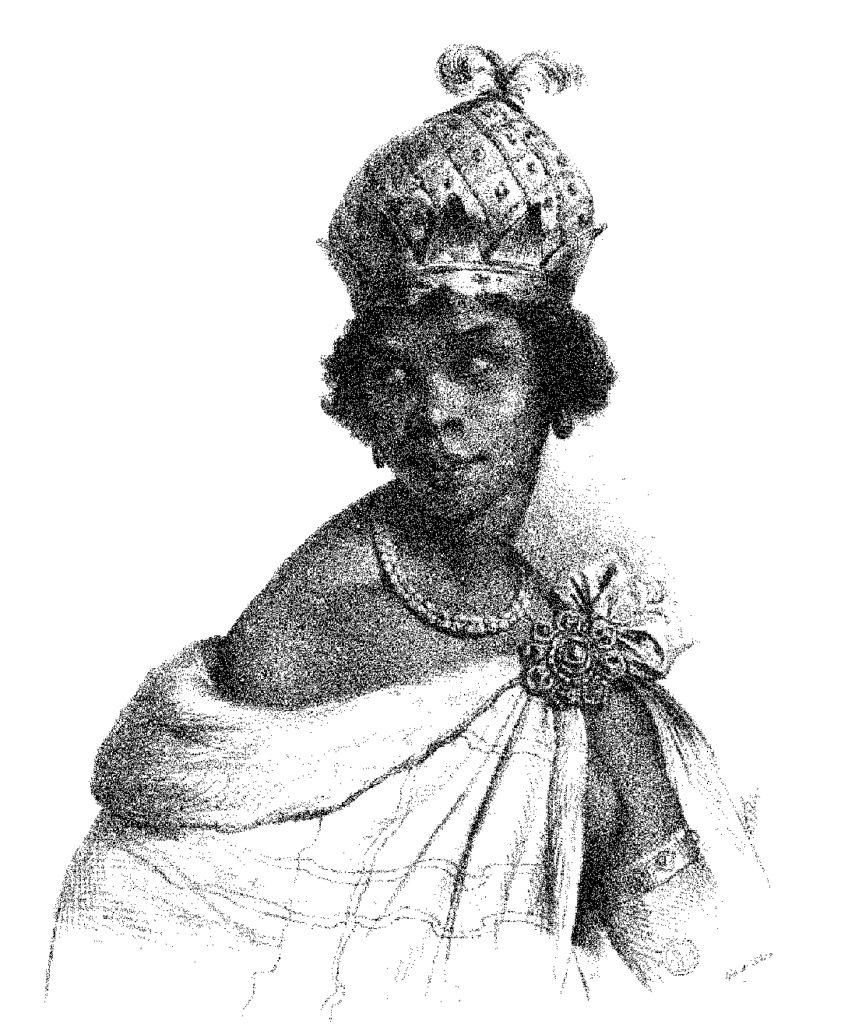The ruler of what is now Angola fought her would-be conquerors for decades
ADF STAFF
Southwest Africa never had a stronger advocate than Queen Nzingha of Ndongo, in what is now Angola. She fought to protect her people from slave traders for most of her long life.
And she was good at it. American scholar John Henrik Clarke described her as “the greatest military strategist that ever confronted the armed forces of Portugal.”
Ana Nzingha was born around 1580 in Kidonga, the capital of the kingdom. Her father was the king, and he was succeeded on the throne by his son, Ngola Mbande. “Ngola” means “king,” but the Portuguese mistook it for the name of the country — that’s how Angola got its name.
At that time, the English and the French were muscling in on Portugal’s Atlantic slave trade. The Portuguese responded by moving into other parts of Africa. They built a fort and settlement on the southwest coast, in what is now Luanda, in 1617. Five years later, they invited Mbande to discuss peace terms, and he sent his sister in his stead.
The meetings were unusually sensitive. The Portuguese already controlled neighboring Congo, so Nzingha had to negotiate a way for her brother’s kingdom to continue to trade with Portugal without coming under its control. At the first meeting, her hosts provided only one chair, for the Portuguese governor. She was to sit on a mat on the floor, in a subservient position. Nzingha would have none of it — she instructed one of her entourage to drop to her hands and knees, so that Nzingha could use her back as a chair.
In 1626, her brother died. One story has it that he committed suicide, unable to deal with Portugal’s slave trade demands. Nzingha inherited his throne and took an aggressive tact, building alliances with rival states. In 1627, she attacked the Portuguese, sparking a war that lasted 30 years.
Nzingha was a resourceful military leader in a sprawling, on-again, off-again war. She offered sanctuary to runaway slaves and deserting soldiers. She developed a system in which young men gave up all family ties to be raised in communal brotherhoods of soldiers.
In 1641, Queen Nzingha allied with the Dutch, who had been her kingdom’s former rivals. Together, they overwhelmed the Portuguese in 1647. Portugal defeated the Dutch a year later, forcing the Dutch to abandon parts of Africa. That did not stop the queen, who continued to fight Portugal, often personally leading her troops into battle, even when she was past the age of 60.
Queen Nzingha organized guerrilla attacks on her enemy. Portugal and its allies responded to the attacks by trying to find and dethrone the queen. But she was elusive, and years after her fighting was over, she died of natural causes in 1663. She was in her 80s.
Today she is remembered as a brilliant diplomat, a master of military tactics and a lifelong tormenter of her would-be conquerors. Historians say that Angola’s independence in 1975 has its roots in Nzingha’s guerrilla tactics. In 2002, Angola dedicated a statue of her in Luanda to celebrate the country’s 27 years of independence.

